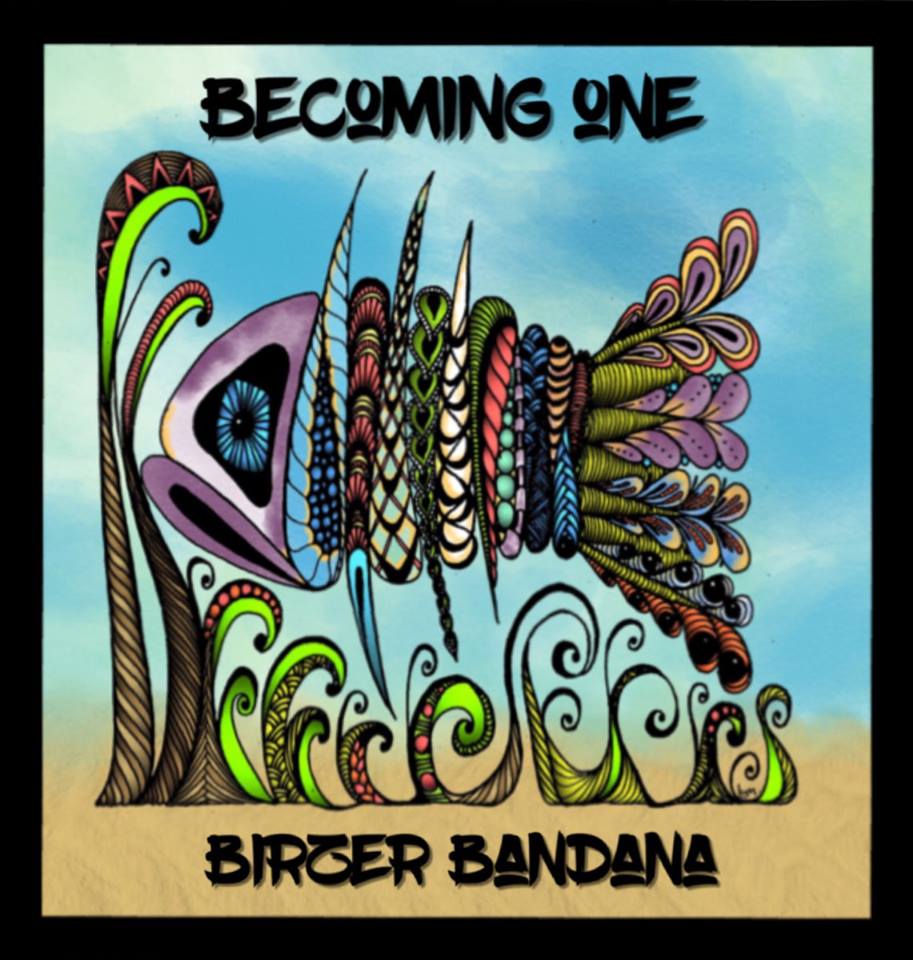
Theology, intellectual rock, and the liberal arts — these are three main elements of the debut album by Birzer Bandana, a collaboration between progressive rock musician Dave Smith and Hillsdale College Professor of History Bradley Birzer.
Birzer provided the concept and lyrics, and Smith wrote the music for the seven-song progressive rock album “Becoming One,” which was released on Spotify, Bandcamp, and iTunes March 18.
Progressive rock seeks to combine the formal elements of classical music while also embracing the eclectic side of rock and roll music, according to music critic Lucas Biela of progarchives.com.
“Rock bands like the Rolling Stones wanted to show pure emotion in their music. Prog is a more intellectual genre that shares ideas,” Birzer said.
Birzer said he used minimalistic and imagist lyrics to relate Christian ideas and a philosophy of the liberal arts without being too obvious or preachy.
“I didn’t want someone to think this was Gospel Rock,” Birzer said.
Birzer Bandana has never even met face to face, and yet the duo was able to produce a full length album with music that engages with the genre of science fiction while also contemplating more traditional themes like the liberal arts and the incarnation of Jesus Christ.
“One of the things that first drew me to Dave was his voice. He doesn’t have a huge range, but I love how earnest his delivery is,” Birzer said.
The two men struck up a correspondence over email after Birzer began listening to Dave Smith and Dave Curnow’s joint prog-rock project Salander more than five years ago. Based in Durham County, England, Smith and Curnow have produced six albums together and have developed a small but loyal cult following. Smith, who goes by the stage name “Dave Bandana,” is British but recently relocated to the Canary Islands, where he performs professionally.
A well-rounded musician, Smith plays bass, guitar, drums, synth, piano, organ, and mellotron on the album. Despite the incorporation of many different instruments, Smith still made the vocals a primary element of the album.
“It was a different way of working for me,” Smith said. “On the plus side, I got my own way over every musical decision because there was no one to tell me different, but maybe not all of them were correct ones. On the downside, I like feedback but I knew that Brad was happy for me to make the musical decisions.”
Impressed by what he heard, Birzer began an email exchange with Smith that became a strong friendship. Birzer said he never thought it would blossom into a creative partnership, but when Smith approached Birzer with the opportunity to write a concept and lyrics for an album, Birzer could not refuse.
Despite Birzer’s statement that he “has no experience with composition or musical talent,” Smith found his lyrics challenging and engaging.
“I sat and read and re-read the lyrics for a couple of days to get a feel for the concept and the world it was set in,” Smith said. “The lines were short and very staccato with lots of word repetition.”
Once he found his footing in Birzer’s apocalyptic, theological lyrics, Smith began writing music to fit the setting.
“I then set about creating some soundscapes either using keyboard sounds or guitar until they became something I liked,” he said. “It was then a case of editing them into song form then adding the other instruments and finding a tune to fit the lyrics.”
Birzer said one of his main impetuses for the album was a seed which had been germinating in his mind for a while after a visiting speaker expressed pride in having identified 18 facets of his personality. Birzer thought this wasn’t the point.
The album begins in desolation, as Birzer writes in the preface to the liner notes which “A Canticle for Leibowitz” by Walter M. Miller Jr. provide the opening scene, but “everything that followed came from my own love of vast, deserted, and broken landscapes.” The opening track, “Awash,” prefaces the project with a wall of sound as guitars seem to fill the recording until a violin, played by Smith’s friend Olga Kent, cuts through, placing the listener into a scene of “Deadly, deadly heat,” as the lyrics read.
The album concludes with “Incarnate,” which begins with a simple chord progression on the piano as Smith gradually layers his voice over the lyrics.
One voice sings: “The flesh becomes the word / the image is the whole.”
Two voices harmonize: “Alone, free, unique, free.”
And a third voice breaks through between the harmonies: “The errors, hell / the fire, purgation / the man is free.”
The album then dances away with a soaring guitar solo, bringing the listener through desolation and into freedom.
Birzer Bandana already has another album in the works. The duo are planning their next project, which will focus on combining science fiction and progressive rock even more closely. Birzer said the next album will have a clearer narrative arc centering around three men in a starship.
“Becoming One” seeks to edify and affirm the unity of the human person. As Birzer writes in “3 to 1”: “Colors shift, forms form, / Shades shade / Colors color / From three to one / Becoming whole.”

